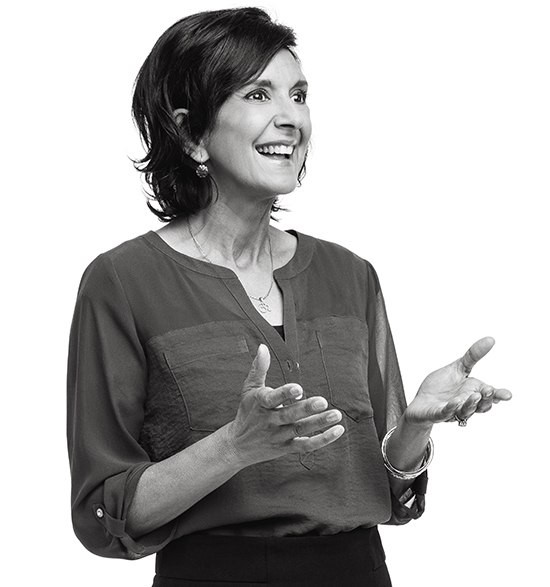Why Adaptability in Leadership Is Everything
Curtis Bateman
26th January 2023
- 8 min read

As we see in a new year and begin refining our 2023 priorities, now is the time to carry out a personal relevancy audit. Is your way of thinking, communicating and working what is needed to achieve them?
Twice a year I approach my boss and ask for feedback. The idea of this takes a lot of intentionality and practice; it’s called a ‘comfort zone’ for a reason. However, over the course of 25 years researching change I’ve learned just how easy it is to become- and essential it is to avoid getting- complacent.
It’s true that leaders everywhere have been put through their paces and adapted admirably in the face of crisis in order to keep going. But truly doing ourselves and our team justice in the future of work means stretching that skill in order to proactively learn, change and optimize on an ongoing basis. Not only when something out of our control goes awry.
Many of us will be familiar with the adage: “the definition of insanity is doing the same thing over and over again and expecting different results.” Swap ‘insanity’ for ‘ineffectiveness’ and that is leading without adaptability.
At FranklinCovey we talk about developing the mindset, skillset and toolset of great leaders. What this most succinctly comes down to is: are you able to adapt your behavior for your people to get what they need from you?
With great responsibility, must come great adaptability
It’s true that leaders need good intuition and a strong resolve during times of stress. However, they also need self-awareness, humility and an ability to personally model what we want to see in their team. All of which underpin adaptability, named by 70% of executives in a Harvard Business School survey as the most important quality in a leader.
It is also a quality which needs our focus, with a separate 2022 Catalyst survey of 5,494 employees in 11 countries across the globe revealing nearly seven out of ten employees say their manager fails to adapt. The cost is great, with the same research finding when leaders have high adaptability (and empathy), employees 43% less likely to experience work burnout.
When you first take on the role, if your mentality around how and why you achieve results hasn’t changed, it is likely you’re not actually leading to begin with. The initial shift makes success possible. The ability to continuously adapt thereafter makes success as a leader sustainable.
Promotions always mean you need to change what you’re doing
I felt the need to adapt keenly when I started my current role of FranklinCovey Vice President of International Direct Offices; all of a sudden, I had 200 people reporting to me from all over the world. I wasn’t awake at the same time as many of them, let alone given the luxury of time spent forging personal relationships with each one.
Directly leading a team of international leaders and indirectly those below them, required a significant mindset shift. If I’d have maintained a cadence of high-touch interactions or endeavored to get into the detail of all the decisions, I wouldn’t have enough time to actually do my job. Instead, I had to accept the new parameters of my role, pivot my own expectations and extend trust on a new level. I had to be a different kind of ear and influencer.
This is in addition to the ways I had to adapt my thinking to accommodate different cultural preferences. What motivates, includes and empowers on one continent doesn’t necessarily on another. That’s a macro example of course, but on a micro level every leader risks missing and neglecting the inherent human diversity in their team, if they’re not open to seeing and pivoting to new information.
Growth vs Fixed Mindsets
I find great clarity in these words of Peter Drucker: “Management is doing things right, leadership is doing the right things”.
You can’t expect to be doing the right things, or doing right by your people, if you’re blinkered by an inflexible, comfortable way of thinking. When leaders and therefore teams fixate too heavily on known assumptions, long-held practices or rigid roles, progress stalls, efforts become futile and motivation wanes.
Leaders with a growth mindset, on the other hand, understand that improvement in all areas, for all people, is always possible. They’re cheered by it. The idea that the way they’re acting or thinking may not be the only or most optimum way ignites curiosity rather than indignation, giving them the courage to let go of what no longer serves them or their team. These leaders don’t try to shoehorn people and KPIs into models that are no longer the best fit.
A growth mindset is the powerful belief which galvanizes the practical trait of adaptability, activating the critical-thinking skills for noticing when and caring why you should behave differently.
I delve into this topic and the process of empowering buy-in to change as a guest on The Company Doctor podcast recently, which you can listen to here.
Meet your people where they’re at
Understanding adaptability as ‘our capacity to notice contextual clues signaling a behavior or mindset shift is needed’ means we can truly understand the all-encompassing nature of this skill in leadership. It requires both compassion and action.
Adaptability means ‘meeting people where they’re at’ through noticing and understanding their perspective. It’s one of the key building blocks on which rests the development of emotional intelligence – which, essentially, is a potent mix of self-awareness and empathy.
I like to demonstrate this through the metaphor of understanding that in times of crisis we are often ‘in the same storm, but a different boat.’ This speaks to the idea that we must always remember that our experiences and perspectives are unique to us; we must not allow subjectivity to blunt our perception of others’ realities. Or limit their unique potential.
Adaptable leaders ask “what do you need to achieve this?” not “can you achieve this? Why aren’t you doing this?”. They pivot to the person in front of them and then actively adjust their approach accordingly. Only when listening is followed by a change in behavior, do leaders gain build and sustain trust.
This is why leaders who excel in adaptability bring performance benefits to their teams that are particularly impactful in high-pressure situations. Like during periods of change. And it’s particularly challenging for leaders who must implement change that someone else decided was a good idea.
Leading through a change you didn’t choose
This leads to what I describe as a ‘leader’s dilemma’: being tasked with implementing a change you aren’t fully onboard with, but that you must nevertheless support. It is a test of both the confidence you have in yourself, and that other people have in you.
In this situation, you might at once be grappling with your own reaction and reservations whilst simultaneously trying to ensure buy-in from the team and manage their reactions to the transition.
Adapting to change starts with noticing your own reactions first and learning to reserve judgment. Analyze your reaction. How does this compare to similar situations you’ve faced previously? Are you reacting to legacy emotions? What did you learn from that experience and how your actions influenced the outcome?
In all change scenarios, whether you’re on board or not, you’ll need to consciously adjust your approach to manage your team’s response. Your ability to make your team feel safe to make mistakes, motivated to push themselves and positive about the future is what your success as a leader is defined by and from where progress will naturally flow.
If you don’t change, neither will your people
I shared at the beginning of this blog that twice a year I ask my boss for feedback. It is a practice everyone would benefit from, but which takes a lot of intentionality and sincere desire to improve. Growing as a leader though requires both upwards and downwards input.
We must be able to fulfill what both the business and our direct reports need to succeed.
The reality is that we cannot execute on what the business needs if we are not able to adapt to, and nurture, the people who follow us, their learning styles, preferred ways of working, unique talents and anxieties. And to do that, we need to continuously interrogate, adjust and work on our own.
Ultimately, adaptability means understanding that the version of you that was working at the beginning of the year, let alone your career, won’t be the exact same version today. Moving from feeling uneasy about this idea to seeing it as an opportunity is where the core of the skill lies, and the responsibility you have to nurture it.
Be inspired to transform to how you lead yourself and others through change with Curtis Bateman’s new book ‘Who Rocked the Boat? A Story About Navigating the Inevitability of Change’. Click here to learn more and get your copy now.





